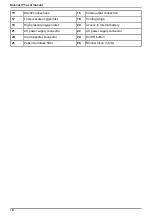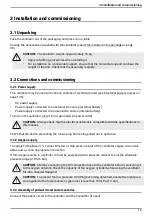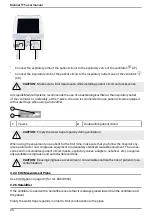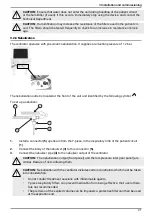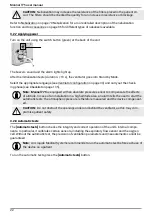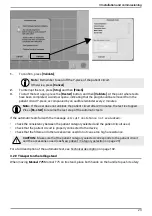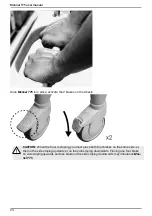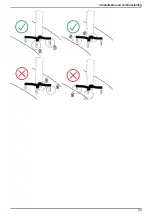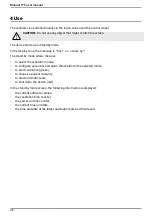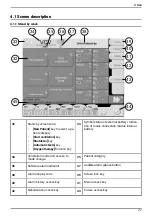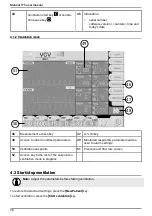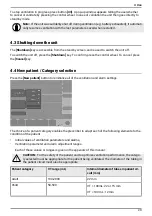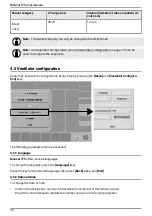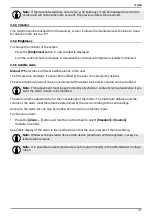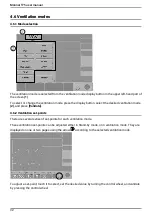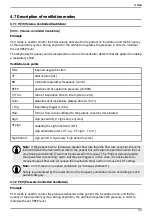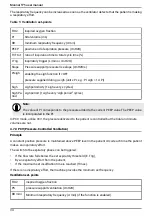
3 Installation and commissioning
3 Installation and commissioning
3.1 Unpacking
Take the ventilator out of the packaging and place it on a table.
Unwrap the accessories supplied with the ventilator (see Items included in the package on page
96).
CAUTION:
The ventilator weighs approximately 16 kg:
•
Apply safe lifting procedures when installing it.
•
For installation on a horizontal support, ensure that the horizontal support can bear the
weight of the unit. Check that the assembly is stable.
3.2 Connections and commissioning
3.2.1 Power supply
This ventilator may be used with various sources of electrical power (see Electrical power sources on
page 105):
•
AC power supply;
•
Power supply connected to an external DC source (external battery);
•
Power supply connected to an internal DC source (internal battery).
To turn on the ventilator, plug it into a grounded AC power outlet.
CAUTION:
Always check that the electrical network is compatible with the specifications in
this manual.
Check that the device preventing the mains plug from being pulled out is operative.
3.2.2 Oxygen supply
To supply FiO2 above 21%, connect the low or high pressure inlet of the ventilator oxygen to an avail-
able source, via an appropriate connection.
If this oxygen source is a cylinder, it must be equipped with a pressure reducer to suit the allowable
pressure range (2.8 to 6 bar).
CAUTION:
Start by connecting the O2 connection hose to the ventilator before connecting it
to the oxygen network. Check the capacity of the oxygen cylinder before using the ventilator
for intra-hospital transport.
CAUTION:
To prevent the low pressure O2 fitting becoming detached, ensure the input pres-
sure applied to the low pressure oxygen inlet is less than 150 kPa (1.5 bar).
3.2.3 Assembly of patient circuit and accessories
Connect the patient circuit to the ventilator and the humidifier (if used):
19














